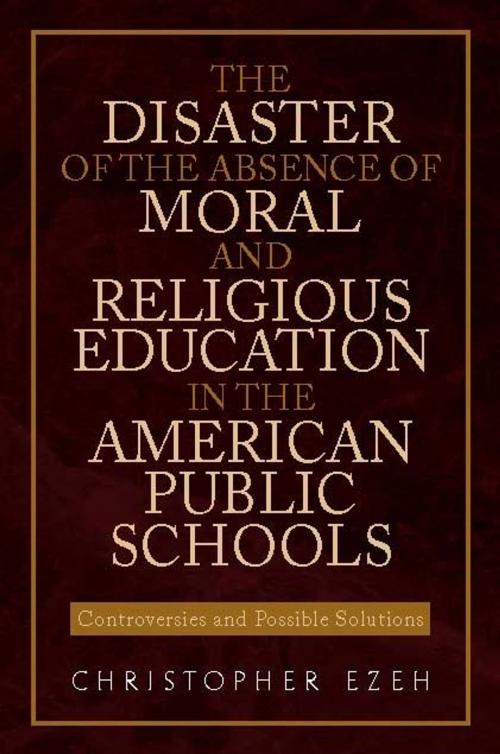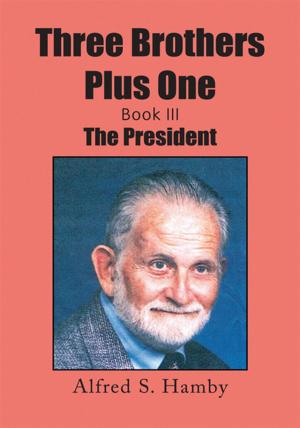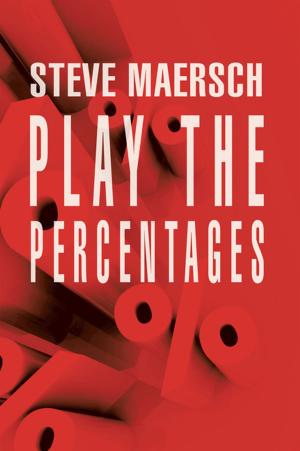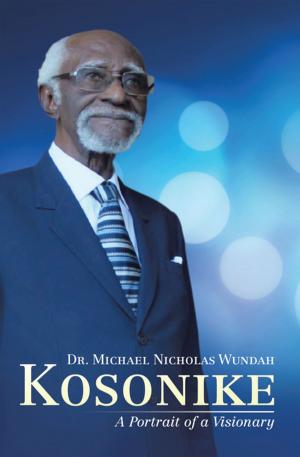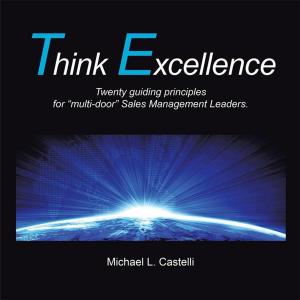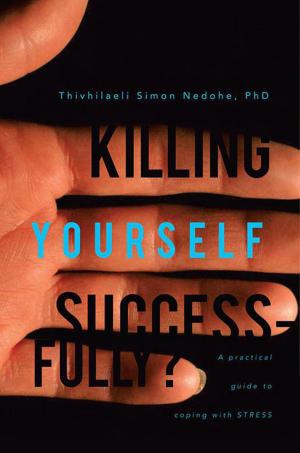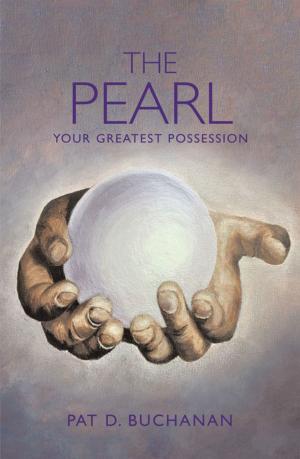THE DISASTER OF THE ABSENCE OF MORAL AND RELIGIOUS EDUCATION IN THE AMERICAN PUBLIC SCHOOLS
Nonfiction, Religion & Spirituality, Reference, Education| Author: | Christopher Ezeh | ISBN: | 9781453584170 |
| Publisher: | Xlibris | Publication: | October 20, 2010 |
| Imprint: | Xlibris | Language: | English |
| Author: | Christopher Ezeh |
| ISBN: | 9781453584170 |
| Publisher: | Xlibris |
| Publication: | October 20, 2010 |
| Imprint: | Xlibris |
| Language: | English |
Thomas Aquinas, in his philosophy of religion, said that man is a religious being (homo religiosus). By this he meant that man is a being that naturally stretches to the beyond, to the unknown outside of himself. He yearns and reaches out for an infinite peace, joy, and happiness. He does all within his power to grasp an endless happiness, a joy that knows no end. This has been his instinctive, conscious, and unconscious aspiration. He tends to pursue and grab that which captures his attention and wins his admiration. Many a time, he ends up grabbing a shadow, an illusion of real happiness, an illusion of the source of true and lasting happiness. When he grabs that shadow, he settles to worship it as the ultimate source of an infinite happiness. It will not be long before he discovers that it is all a mirage. This ultimate joy and happiness is not found within man’s immediate environment, because whatever he clings to seems to fail in providing such ultimate joy, peace, and happiness, which men, by nature, tend to yearn and long for. Man has always interpreted peace, joy, happiness, and their sources differently. Thus, his beliefs and objects of worship, devotion, and dedication vary one from another—hence the reason for different world religions and creeds today (Christianity, Judaism, Islam, Buddhism, atheism, etc.). To say that man is a religious being implies that naturally man always believes in and worships something. Hence, there can never be an atheist in the real sense of it. Not to believe is to believe. For example, not to believe in the existence of God is to believe that God does not exist. Even though some people do not believe in the existence of a personal God or god, they still believe in something, which could be anything—money, freedom, wealth, riches, power,beauty, achievement, talent, name it. Just as our ancient fathers believed in carved idols as gods and worshipped them, so do people in the modern time hold on tenaciously to all kinds of idols in the form of money, beauty, wealth, riches, power, achievement, talent, etc., and worship them as gods and hope that someday these might give them an endless peace and happiness, which have been the ultimate end of man’s endeavor or pursuit on earth. This false hope of man’s longing to achieve endless peace and happiness from material possessions or natural endowment explains itself in some ancient cultures whereby the dead are buried along with some of their possessions, including gold, money, slaves, etc. The fact that people of outstanding talents, riches, and wealth have committed suicide has put a big question mark to this erroneous ideology that happiness could be achieved through material possession. What was wrong in the lives of those affluent and talented people who killed themselves contrary to all instincts of self-preservation? What was missing in their lives that none of their material acquisitions or achievements could satiate or afford? Man longs for lasting happiness. He has the capacity to conceive and yearn for infinite happiness. Hence, he does not want to be happy today and sad tomorrow. But how would he achieve that joy or happiness that has no end, which has always remained man’s unrealized dream? No branch of discipline or knowledge has been able to provide an answer and a remedy to man’s natural longing for endless joy, lasting peace, and happiness, but religion. Religion has an answer, a remedy, and a hope. In this book, I will demonstrate how religion provides an answer, a remedy, and a hope for man’s ultimate search and yearning for lasting peace and happiness in his life and in the society in which he lives. I will explore the idea that man is a spiritual as well as a religious being. I will also delve into how his natural endowment with freedom, intellect, and will enables him to express his religiosity. I will further demonstrate how the misinterpretation and misapplication of the idea of the separation of state and church, or religion, has impacted adversely man’s free expression of his religiosity and spirituality in the United States of America, and most importantly how it has adversely affected moral and religious education of our children and youth in the public elementary and high schools. I will explore different controversies and debates that are related to theabolition or establishment of religious and moral education in the public schools. The past opinions of those who have debated on the issues of abolition or establishment of religion in the public schools shall be reviewed, and the strengths and weaknesses of their arguments will be weighed and evaluated. This book will further expose and deliberate on the devastating effects of lack of religious and moral education among our children and the youth in the public elementary and high schools. These devastating effects of lack of religious and moral education of our children in the public schools reach their climax in the colleges and universities, which finally blossom in society as the students graduate out into the community. I will discuss the exigency and importance of religion in the American public schools in relation to the education of the young who constitute the foundation and the hope of the future of society. The American government has abolished religion in all its forms in the American public schools. This makes it possible for children to pass from elementary through high school to college without having anything to do with religion in their formal education. The government did this either because they have discovered that it is useless, irrelevant, and of no purpose, and that children can always do well in their education and in their lives without religious education, or that they cannot afford its funding or put up with the differences that could arise from different religions, which could lure the government into an excessive entanglement with religion. How true and cogent is any of the above listed fears and anxieties of the government as a reason for the abolition of religion in the public schools? Most importantly, I will explore new ideas and possibilities on how religious and moral education of our growing children and youth could be restored back to public schools without the government having to fund religion or involve itself in an excessive entanglement with religion; without infringing on the freedom of others who might not like to involve themselves in the affairs of religion or in the affairs of a particular religion other than their own; without the practice of public prayer, the observance of a moment of silence, etc., in an assembly of mixed students of diverse religious orientations; without the coercion of a student, a teacher, an administrator, or others into the practice of religion against their will; and without the school having to formulate prayer for students of mixed faith traditions.
Thomas Aquinas, in his philosophy of religion, said that man is a religious being (homo religiosus). By this he meant that man is a being that naturally stretches to the beyond, to the unknown outside of himself. He yearns and reaches out for an infinite peace, joy, and happiness. He does all within his power to grasp an endless happiness, a joy that knows no end. This has been his instinctive, conscious, and unconscious aspiration. He tends to pursue and grab that which captures his attention and wins his admiration. Many a time, he ends up grabbing a shadow, an illusion of real happiness, an illusion of the source of true and lasting happiness. When he grabs that shadow, he settles to worship it as the ultimate source of an infinite happiness. It will not be long before he discovers that it is all a mirage. This ultimate joy and happiness is not found within man’s immediate environment, because whatever he clings to seems to fail in providing such ultimate joy, peace, and happiness, which men, by nature, tend to yearn and long for. Man has always interpreted peace, joy, happiness, and their sources differently. Thus, his beliefs and objects of worship, devotion, and dedication vary one from another—hence the reason for different world religions and creeds today (Christianity, Judaism, Islam, Buddhism, atheism, etc.). To say that man is a religious being implies that naturally man always believes in and worships something. Hence, there can never be an atheist in the real sense of it. Not to believe is to believe. For example, not to believe in the existence of God is to believe that God does not exist. Even though some people do not believe in the existence of a personal God or god, they still believe in something, which could be anything—money, freedom, wealth, riches, power,beauty, achievement, talent, name it. Just as our ancient fathers believed in carved idols as gods and worshipped them, so do people in the modern time hold on tenaciously to all kinds of idols in the form of money, beauty, wealth, riches, power, achievement, talent, etc., and worship them as gods and hope that someday these might give them an endless peace and happiness, which have been the ultimate end of man’s endeavor or pursuit on earth. This false hope of man’s longing to achieve endless peace and happiness from material possessions or natural endowment explains itself in some ancient cultures whereby the dead are buried along with some of their possessions, including gold, money, slaves, etc. The fact that people of outstanding talents, riches, and wealth have committed suicide has put a big question mark to this erroneous ideology that happiness could be achieved through material possession. What was wrong in the lives of those affluent and talented people who killed themselves contrary to all instincts of self-preservation? What was missing in their lives that none of their material acquisitions or achievements could satiate or afford? Man longs for lasting happiness. He has the capacity to conceive and yearn for infinite happiness. Hence, he does not want to be happy today and sad tomorrow. But how would he achieve that joy or happiness that has no end, which has always remained man’s unrealized dream? No branch of discipline or knowledge has been able to provide an answer and a remedy to man’s natural longing for endless joy, lasting peace, and happiness, but religion. Religion has an answer, a remedy, and a hope. In this book, I will demonstrate how religion provides an answer, a remedy, and a hope for man’s ultimate search and yearning for lasting peace and happiness in his life and in the society in which he lives. I will explore the idea that man is a spiritual as well as a religious being. I will also delve into how his natural endowment with freedom, intellect, and will enables him to express his religiosity. I will further demonstrate how the misinterpretation and misapplication of the idea of the separation of state and church, or religion, has impacted adversely man’s free expression of his religiosity and spirituality in the United States of America, and most importantly how it has adversely affected moral and religious education of our children and youth in the public elementary and high schools. I will explore different controversies and debates that are related to theabolition or establishment of religious and moral education in the public schools. The past opinions of those who have debated on the issues of abolition or establishment of religion in the public schools shall be reviewed, and the strengths and weaknesses of their arguments will be weighed and evaluated. This book will further expose and deliberate on the devastating effects of lack of religious and moral education among our children and the youth in the public elementary and high schools. These devastating effects of lack of religious and moral education of our children in the public schools reach their climax in the colleges and universities, which finally blossom in society as the students graduate out into the community. I will discuss the exigency and importance of religion in the American public schools in relation to the education of the young who constitute the foundation and the hope of the future of society. The American government has abolished religion in all its forms in the American public schools. This makes it possible for children to pass from elementary through high school to college without having anything to do with religion in their formal education. The government did this either because they have discovered that it is useless, irrelevant, and of no purpose, and that children can always do well in their education and in their lives without religious education, or that they cannot afford its funding or put up with the differences that could arise from different religions, which could lure the government into an excessive entanglement with religion. How true and cogent is any of the above listed fears and anxieties of the government as a reason for the abolition of religion in the public schools? Most importantly, I will explore new ideas and possibilities on how religious and moral education of our growing children and youth could be restored back to public schools without the government having to fund religion or involve itself in an excessive entanglement with religion; without infringing on the freedom of others who might not like to involve themselves in the affairs of religion or in the affairs of a particular religion other than their own; without the practice of public prayer, the observance of a moment of silence, etc., in an assembly of mixed students of diverse religious orientations; without the coercion of a student, a teacher, an administrator, or others into the practice of religion against their will; and without the school having to formulate prayer for students of mixed faith traditions.
